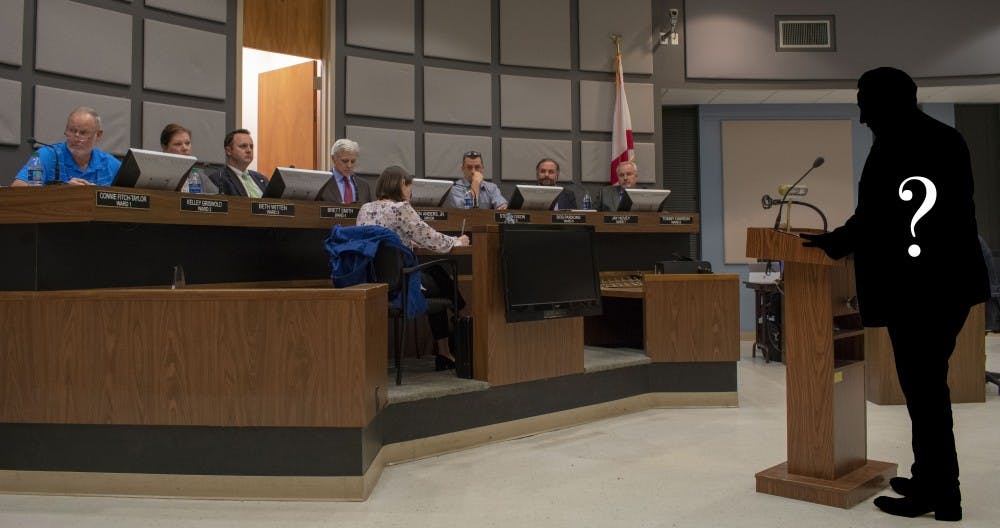As a growing city, Auburn is continuously facing new and unexpected problems. There have been loud, public debates about building height limits, zoning regulations, short-term rentals and a multitude of other issues that are consequences of a growing population.
At their heart, these issues are manifestations of a question being asked about Auburn’s future: while the city continues moving forward, how much of its past should we keep around?
That question and the complexities surrounding it underlie the current debate about the relocation or deconstruction of the historic Cullars house on South College Street.
As The Plainsman has reported, this large, white house has stood near the University for 126 years, but it’s currently under threat of being demolished by its new owners.
In the late 1800s the Cullars family became locally famous after being selected to rebuild Old Main, which later became Samford Hall, after it burned down in 1887.
More recently, the house was bought in August 2017 by Orange Development LLC.
In June 2019, the new owners sent out a notice stating that the current property lease would end on Oct. 4 and that the city had until Sept. 30 to notify the property owner of their intention to purchase or relocate the house or leave it to be demolished.
Maybe it’s because the Auburn community cherishes their historic houses — maybe it’s because a City Council member currently works in this historic house — regardless, the preservation of the Cullars house has become one of the defining debates for the last month.
The debate persists because estimates for its relocation and preservation are currently over $1 million, and no one with deep enough pockets has publicly expressed interest in paying for it.
Still, council members have said they have received more feedback from citizens on this issue than any other in recent memory.
Residents have shown up at City Council meetings, they have called and emailed their representatives and they have ensured that their voices are heard. Some council members have even held forums and meetings specifically for exploring options to relocate or purchase the house.
Overall, lawmakers said there wasn’t a clear favorite between the options presented, but a lot of residents seemed to agree that the City should not be spending its own tax revenue on the house.
Some residents pointed to roads that need repairs or public programs for children and senior citizens as better places for the City to put $1 million.
That attitude was reflected in last Tuesday’s council meeting where the City Council voted not to fund the relocation by a margin of 6-2.
As of publication, there are a few days left before the Sept. 30 deadline.
If no organization or individual buys the house or offers to move it by then, it will most likely be torn down.
Regardless of the outcome, the debate around the Cullars house has proved that there is a wider Auburn community who can be involved in the decisions of their local government.
For too long, the biweekly council meetings have been sparsely attended and rarely discussed.
The Cullars house is obviously symbolic of the larger debate taking place in the City, but it is still just that — a symbol.
Not to minimize the current debate, but the fate of the Cullars house will not affect many Auburn residents.
In the meantime, Auburn has a backlog of other issues, debates and challenges surrounding its persistent growth lined up for discussion at council meetings.
It would be a shame for Auburn’s newfound voices to disappear again.
High school civics classes and voter registration advocates like to remind us that voting in local, state and federal elections is not just an American right — it’s an American responsibility.
But the problem with elections is that they are, at best, held every two years.
Auburn gets to vote for its mayor, but it hasn’t done so in over a year.
That is to say, Auburn residents never got to vote on the Cullars house.
Instead, we have to express our concerns at council meetings and by reaching out to our representatives.
In the same way that voting is a duty, this kind of in-between-election participation should not just be appreciated — it should be utilized.
Regardless of your opinion or your council member’s opinion on a given topic, you have the right and duty to speak on issues that you feel strongly about.
Are you upset about a proposed building project?
Do you feel like your rights are being taken away?
Are you concerned about the direction of the city?
Call your representative, show up to meetings and be honest with your elected officials.
Without input from residents, council members won’t have any way of quantifying what their constituents want.
We owe it to ourselves, to our city council members and to our neighbors to speak up and be involved.
Last year, it was about building heights.
This month, it has been about the Cullars house.
Next week it might be about housing in Northwest Auburn, short-term rentals, parking fines, school funding or one of the other vital functions performed by a local, city-sized government.
Let’s keep showing up.
It’s our right, it’s our responsibility, it’s our duty and it’s in our own best interest.
Do you like this story? The Plainsman doesn't accept money from tuition or student fees, and we don't charge a subscription fee. But you can donate to support The Plainsman.





